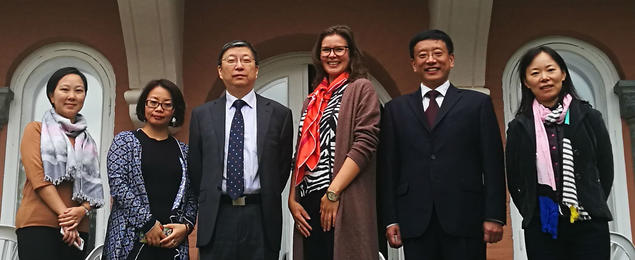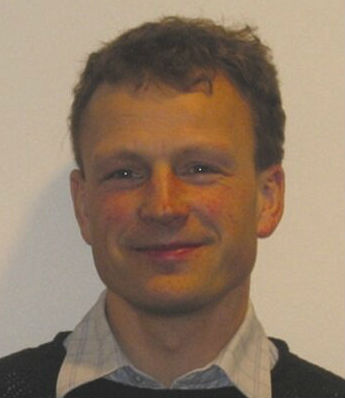High-ranking Shanghai delegation at FNI

With the shared goal of reducing carbon emissions, a delegation from Shanghai and Norwegian experts recently met for a climate and energy roundtable at FNI.
The delegation, made up of officials from Shanghai’s municipal government and governmental agencies, had come to learn about Nordic mitigation measures and alternative energy sources. Their stay in Oslo was the first stop on a study tour that would include Bergen, Copenhagen and Helsinki.
Adjusting to a low-carbon society
A central question discussed at the roundtable was how to achieve the emissions targets set by the Paris Agreement. The Shanghai delegation received in-depth briefings from FNI experts, other academics, the NGO Zero and a representative from the Norwegian Ministry of Climate and Environment. Of special interest were Norway’s climate change policies, the Nordic power system, and various infrastructure developments.
‘The Shangha i expert community on low-carbon is highly knowledgeable. Although there are great differences in size between Shanghai and Norwegian cities, we have a common aim: to improve the lives of the people by reducing pollution and GHG emissions’, explains FNI researcher Iselin Stensdal.
i expert community on low-carbon is highly knowledgeable. Although there are great differences in size between Shanghai and Norwegian cities, we have a common aim: to improve the lives of the people by reducing pollution and GHG emissions’, explains FNI researcher Iselin Stensdal.
Last week’s roundtable, which Stensdal had arranged, focused on exchanging ideas on inventive and sustainable solutions, so as to bring both countries closer to achieving a low-carbon society. Participants representing the Norwegian expert community had several recommendations to share.
Including industry
An important message from Stig Schjølset, Special Adviser on green growth at the Norwegian Ministry of Climate and Environment, was that the transition to low-emissions society can create value and new jobs. However – especially for Norway, with its heavy dependency on oil and gas – the development of new policies will need to build on communication and collaboration with industrial groupings to ensure adequate transfer of expertise.
important message from Stig Schjølset, Special Adviser on green growth at the Norwegian Ministry of Climate and Environment, was that the transition to low-emissions society can create value and new jobs. However – especially for Norway, with its heavy dependency on oil and gas – the development of new policies will need to build on communication and collaboration with industrial groupings to ensure adequate transfer of expertise.
‘Much oil-related expertise can be put to use in the green economy. Statoil building windmills offshore is but one example’, Schjølset noted.
While presenting the Norwegian government’s expert commission on green competiveness and its final recommendations released in 2016, Schjølset highlighted how industrial actors provided input throughout the process, in turn creating new foundations for green growth.
Electricity sector plays a key role
Marie Byskov Lindberg, researcher at the Center for Technology, Innovation and Culture at the University of Oslo, pointed out the key role of the electricity sector in transitioning to a low-emissions society.
‘In order to de-carbonize, electricity has to take over larger shares of other sectors, especially heat and transportation. The Nordic countries are very interesting with regard to the energy transition, as they have set ambitious targets for renewable energy and electricity’, Lindberg explained.
One example of such ambitious targets can be found within the Norwegian heating sector. Although there is still some way to go, Norway is set to be the first country in the world to ban fossil-fuel heating of buildings by 2020.
Strong focus on China
The visit of the Shanghai delegation attests to FNI’s extensive research on Chinese environmental, climate change and energy problems and policies in recent years. The institute currently has several research projects with a strong focus on, and collaboration with, Chinese governmental, industrial and environmental actors. You can read more about some of them here:
